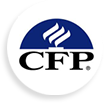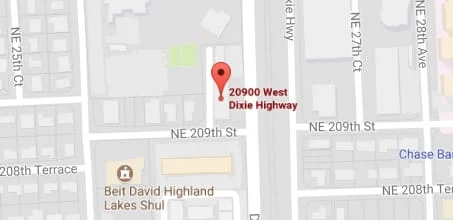On behalf of Law Offices of Frye, Fortich & Garcia, P.L. | April 30, 2021 |Wills
Don’t make the mistake of drafting your own Will and estate plan to save money. With general forms available and online companies that claim to walk you through the “easy” drafting process, it is common to fall prey to their low-priced services. As Florida Probate and Estate Planning attorneys, we see the harmful after-effects of “do it yourself” wills: high legal fees to clean up ambiguities, and sometimes open warfare among the family because of lack of clarity regarding the decedent’s true wishes.
For other common mistakes not discussed in this article read: 4 Common Mistakes to Avoid in Florida Estate Planning.
At the Law Offices of Frye, Fortich & Garcia, P.L., our attorneys begin by learning about the family and identifying their key objectives. What do our clients do for a living? Are they in a high risk business or profession? Do they have minor children? If they have adult children, are any of them incapacitated/cannot make decisions on their own? Are they worried about money not going to their adult children but rather being grabbed by a greedy son-in-law or a shop-aholic daughter-in-law?
Drafting your own Will or Living Trust does not only entail naming beneficiaries. You must decide who is most trusted in the family to follow your instructions. Who will keep the family peace when you are no longer around? To properly advise our clients, we consider all aspects and discuss various options before we begin the drafting phrase.
We take the time to understand the often subtle family dynamics that a computer cannot possibly analyze. For example, creating a special needs trust is just one step in ensuring your disabled child is taken care of. Who will take care of your disabled child? Where will your disabled child live? Is there enough money to maintain the disabled child in your home?
A major company (which shall not be named) has included in their “Terms and Conditions” (which could not be located their website, and were only found after background searching): “Our services are not substitutes for the advice of an attorney and if you need legal advice for your specific matter, or if your matter is too complex to be addressed by our tools, you should consult a licensed attorney in your area.” This disclaimer should be in big bold font before you begin their services, but it is not – it is usually in small hard to fine print. Instead, families usually don’t find out about the mistakes made until the family member has passed.
Other people avoid preparing a Last Will altogether. During the initial consultation at the Law Offices of Frye, Fortich & Garcia, P.L., our attorneys go through a series of questions with our clients. Many new clients suggest not to worry about certain bank accounts or real estate. When asked “why?” the response is usually “we don’t need to include it because my son/daughter is already owner on the account with me.” While this is one way of avoiding probate, you are opening yourself to many other issues. Here are a few reasons why you don’t want to attempt this do-it-yourself estate planning technique:
- Transfers to your Children During your Lifetime: If you need to apply for Medicaid in the future making transfers to your children may qualify as a gift. Medicaid has a 5 year look back period. Transfers made during the last 5 years will be calculated as assets and can disqualify you longer than the actual look back period based on a formula used when determining countable assets. These transfers also expose your assets to your children’s creditors and spouses.
- One Child Receives All: A parent with multiple children names only one child jointly on the bank account and relies on the child to make equal distributions upon their death. However, by law if they are joint owner on the bank account or real estate, they are not required to make any distributions. For instance, if the decedent named a sibling as joint owner because her children were minors at the time…fast forward 20 years later, the sibling remains joint owner but refuses to distribute the assets to the decedent’s children. Result: total alienation between uncle and the children.
- Incorrectly Adding Someone to Real Estate Property (The DIY Deed): Homestead laws in Florida are very powerful and continue upon decedent’s passing if properly devised to surviving descendants as defined under Florida Stat. 732.103. You don’t want to do anything that will impact your homestead protection. A common mistake is adding a child as co-owner on your homestead – this could expose your homestead to the child’s creditors.
- Losing Step-Up In Basis: At time of death, the cost basis of property transferred to beneficiaries receives a step-up in basis to the fair market value. Depending on the original purchase price this could save the beneficiaries on capital gain tax. This applies to real estate, stocks, etc. Transfers made during your life will not receive a step-up-in-basis.
Example: Dad invests in real estate and purchased multiple rental properties, each valued at $40,000 many years ago. Dad starts distributing one house to each child. Each house is now worth $100,000. If property is properly devised by will or living trust each child will be able to take title in the most tax-advantaged way: the child will receive a step-up in basis for the property and can then sell it with little or no capital gain if sold soon after Dad’s death. If Dad makes the transfer during his lifetime and then dies, the cost basis for the property remains at $40,000. When the children sell the properties they will be hit with a big tax bill for approximately $60,000 in capital gain; at the 20% capital gain rate (for many taxpayers) for 2020 this would result in taxes of $24,000.
Conclusion
The above list is not all-inclusive and is intended to provide common scenarios we encounter. If you are considering drafting your own Will (or Living Trust) consult with an attorney specializing in Estate Planning. The Trust Attorneys at Frye, Fortich & Garcia, P.L. are experienced in designing legal plans to protect your family and business. To consult with an estate planning attorney call our office at 305-723-1216










